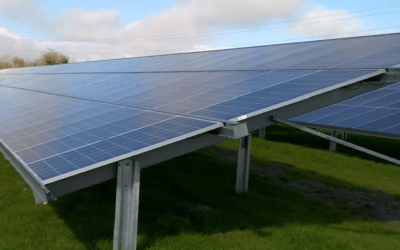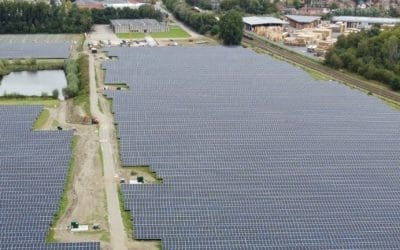I recently had the pleasure of joining Aurora’s Felix Chow-Kambitsch as a guest on the Aurora Energy Research ‘Energy Unplugged’ podcast.
At the heart of our conversation was what the UK needs to do to achieve its net zero target and the crucial role that solar, wind and storage technologies are set to play.
In this note, I share some of the key points we covered and would welcome other’s views on them.
The challenge of net zero
The Government’s recent shift from an 80% carbon emissions reduction target to net zero by 2050 has been a game changer. No longer can any emitter hide behind the assumption that they will be in the 20% ‘exempt’ category.
If this net zero target is to be achieved, then it’s going to take deep and significant change across the whole of our energy system.
The UK’s power generation fleet, which has traditionally relied on fossil fuels and so been a major contributor to the country’s carbon emissions, has rightly been a key focus to date. Renewable assets, including solar and wind, are gradually replacing the retiring fossil plant and thanks to rapidly falling costs, greening our power generation doesn’t come at an additional cost.
When it comes to the decarbonisation of heat, transport and industry, however, that is where things get a little more complicated. For light duty transport, EVs are finally coming of age, so I see widespread electrification in the years to come. In other sectors, there is unfortunately not a ‘no brainer’ low cost, green option, so we will need to make harder choices. For heating, I see electric heating using heat pumps as a key part of the solution. All this means a lot more demand for renewable electricity supply.
Big challenges remain in industry, heavy duty transport and aviation. Here we will need to rely on more expensive technologies, such as CCS (carbon capture and storage) and hydrogen.
It’s also important that these developments are not seen as sequential. In my mind, we cannot decarbonise power generation, then transport and then develop a hydrogen system. We must take action now, across the board, if we are to meet the 2050 target. Indeed, for the more challenging sectors, it could take decades to effect the significant change required, so there is no time to waste.
What role might hydrogen play?
There is a huge buzz about hydrogen in industry and society at the moment. Although I see an important role for hydrogen in those hard to decarbonise sectors, we have to face the difficult reality that hydrogen is a very expensive fuel and the costs reductions needed to make it competitive with the more convenient fossil alternatives are not within reach.
To illustrate the point, to make hydrogen today, you need to start with green electricity (otherwise it’s not carbon free). You then need to use that electricity to produce hydrogen which means losses in the process and costs of the equipment to do it. You then need to store and transport the hydrogen, with more losses along the way. You then need more equipment (hydrogen boiler for heat, or an engine for power) which means more cost and energy loss. No matter how good the technologies along the chain, you may as well just use the green electricity in the first place.
In summary, to achieve net zero we need a truly integrated system – across power generation, heat and transport. The power engine at the very heart of this system will be affordable, green renewables, balanced by energy storage.
You can listen to the podcast episode in full by visiting: EP.58 Mark Futyan, CEO of Anesco by Energy Unplugged





